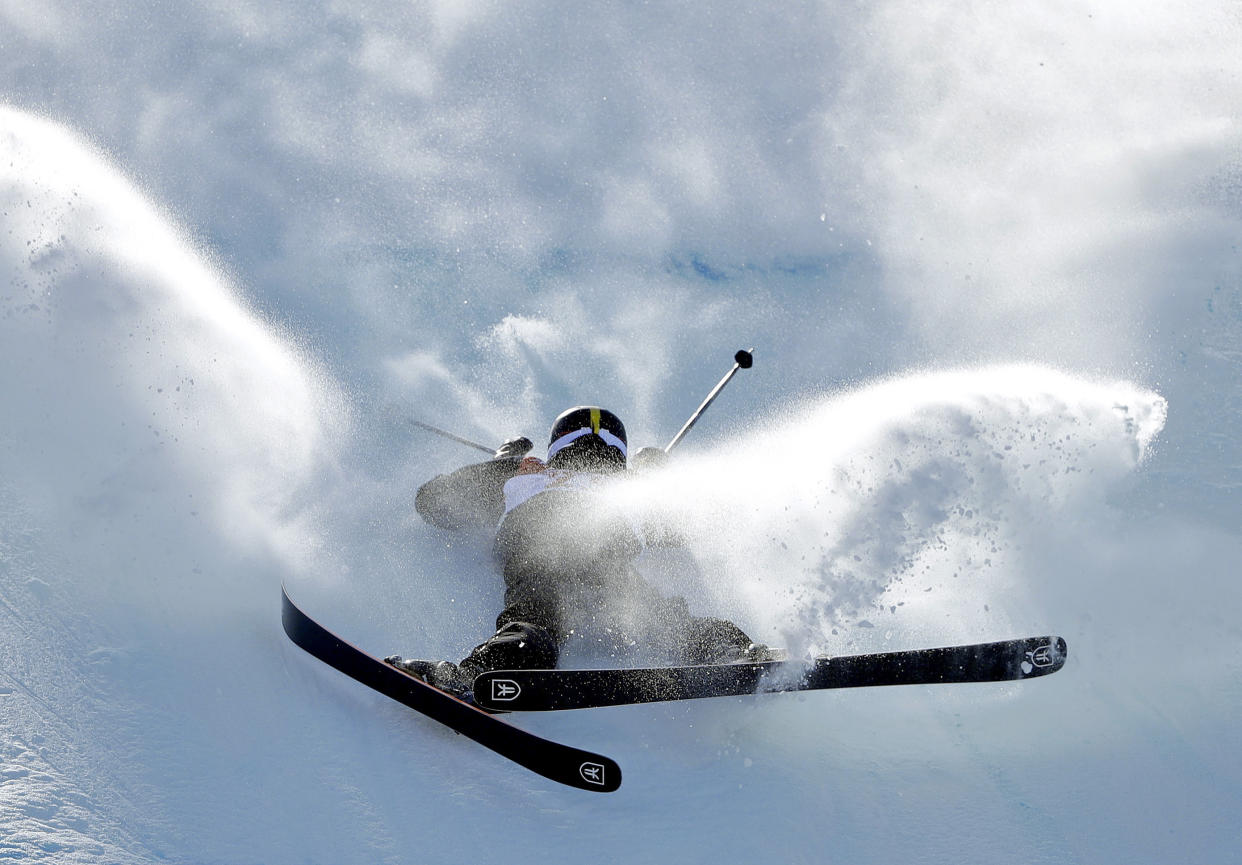Olympic concussion rules under scrutiny after Swiss skier wins post-crash silver

On Saturday, Swiss skier Mathilde Gremaud won a silver medal in the women’s slopestyle event, just 36 hours after she hit her head during a training run. Her fall was bad enough that she was taken to the hospital for tests, but she was cleared to compete and went on to medal.
On the surface, it’s a feel-good story about an athlete overcoming adversity and achieving success. But underneath that veneer, it’s a much darker story about the serious shortcomings of the concussion protocols that the International Olympic Committee and the International Skiing Federation (FIS) have in place.
The account of what happened during Gremaud’s training run comes from Gremaud herself and from the Swiss team doctor. Gremaud talked about it during the medalist news conference, and what she said was disturbing. Here’s her quote, courtesy of NBC Bay Area.
“I fell on my back and hit my head pretty hard. I just know what they told me, so I was shocked, and then we skied down. I was crying. I really don’t know what happened. I forgot everything about yesterday’s training. I got in the ambulance, went to the hospital and got a CT scan and everything was all right. Then, I went back to our place and I had a headache but not that bad.”
There’s a lot to unpack there. Gremaud says she took a “pretty hard” hit to her head and was crying before she got into the ambulance. But more importantly, she says a few times — and in a few different ways — that she doesn’t remember anything beyond the hit. She knows what she was told, which is that she was shocked and crying, and then she remembers having a headache. Less than two days later she was competing.
Swiss team doctor German Clenin shed a bit more light on the timeline during the news conference. He was with Gremaud after her fall, and then traveled to the hospital with her. She underwent “medical scans,” and Clenin performed several neurological tests on her. He said nothing on the scans or in his own tests showed any concussion symptoms, and an additional exam the morning of the competition produced the same results. He also spoke specifically about the symptoms he would expect to see if Gremaud had a concussion.
“She hit her head but she never lost consciousness. That’s important to me,” Clenin said. “Concussion can be defined as loss of consciousness. She didn’t have that. But it could be defined by vomiting, severe headache, vision trouble. We needed to have this time during the night to see if she would develop these symptoms. There weren’t any.”
There’s nothing outwardly suspicious about what Clenin did or said, though Gremaud’s concerning account of memory loss is not accounted for in Clenin’s comments. The main issue is that the team doctor is the responsible party. While both the IOC and the FIS have concussion protocols (or at least recommendations), neither governing body requires that an independent physician examine athletes for concussion symptoms. Which means that a team doctor, who would be close to the athlete and the other coaches and trainers, is the one deciding if an athlete should be cleared to compete.
That doesn’t mean that team doctors will lie or give in to pressure and put an athlete’s health at risk. But an independent doctor would remove even the possibility of that happening. And at the Olympics, which only happen every four years, removing that possibility is even more important.
But the FIS doesn’t see a problem with their current set-up. Or maybe they don’t consider it a problem because they’re not willing to commit the resources to fixing it.
A spokeswoman from FIS said under the federation’s guidelines, a team’s medical staff has authority to clear an athlete. She said FIS runs up to 15 events on any given weekend — it runs six sports at the Olympics, all of which have multiple disciplines — and that bringing independent neurologists to that many venues would not be practical.
Mathilde Gremaud won a silver medal, but the real accomplishment is that she survived several more slopestyle runs just 36 hours after a head injury and managed not to hurt herself further. When that’s the story, it’s time for something to change.
– – – – – –
Liz Roscher is a writer for Yahoo Sports. Have a tip? Email her at lizroscher@yahoo.com or follow her on twitter! Follow @lizroscher


